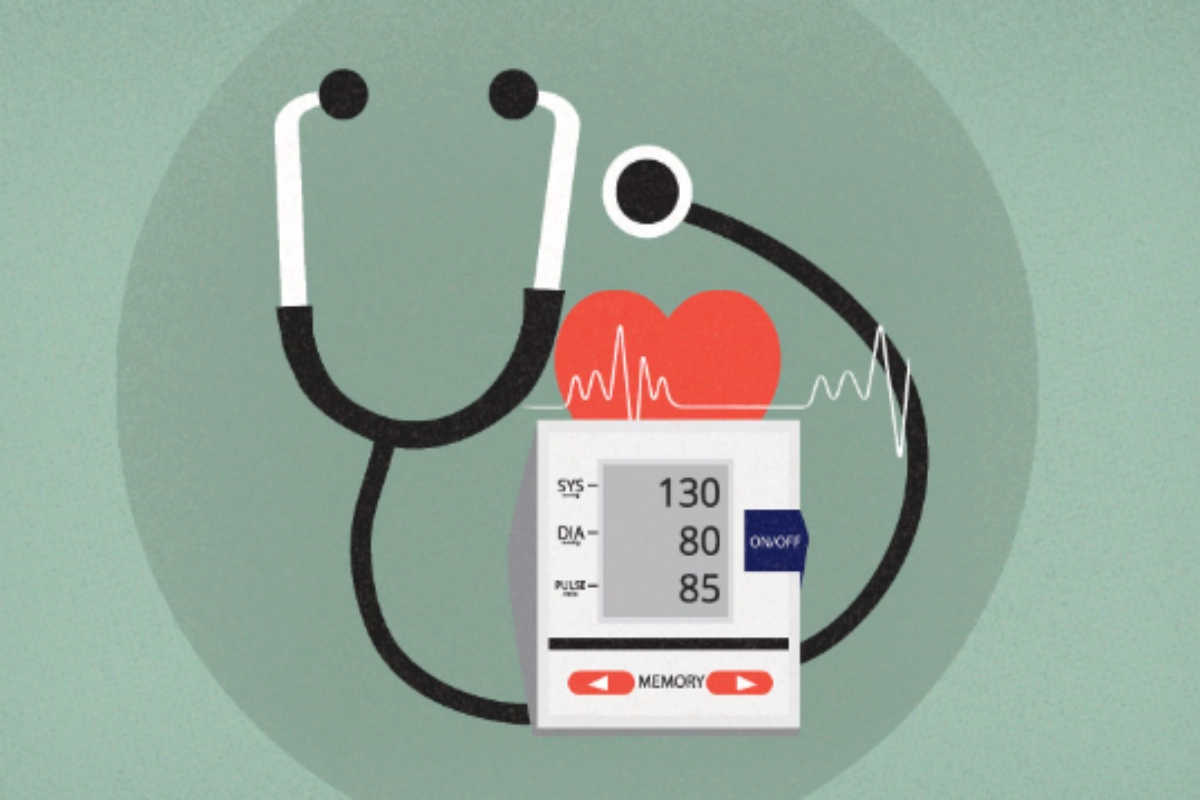Health Tips: Another quiet disease is gradually engulfing the world as it recovers from the aftermath of the COVID-19 pandemic, particularly the younger population of India. The new challenge is hypertension, or high blood pressure.
Shifting Demographics
Previously perceived as a disease mostly affecting the elderly, hypertension is now affecting young people, posing a plethora of concerns regarding lifestyle decisions, health consciousness, and the potential public health emergency that may arise if untreated.
The force of blood pressing on the artery walls—the blood vessels that transport blood from the heart to the rest of the body—is known as blood pressure. Usually, millimetres of mercury (mmHg) are used to measure it. The typical range for blood pressure is 90/60mmHg to 120/80mmHg. A blood pressure measurement of 140/90 mmHg or greater is considered high.
WHO’s Inaugural Study Exposes High Blood Pressure’s Perils
The World Health Organisation (WHO) revealed in its very first study the dangerous consequences of high blood pressure, including how it can cause kidney damage, heart attack, stroke, heart failure, and other health issues.
According to the Indian Council of Medical Research (ICMR), hypertension accounts for more than 10.8% of all deaths in India. It’s becoming more of an issue for young Indians in their 30s; Dr. L.K. Jha, Associate Director & Head Unit of Cardiology at Asian Hospital, noted that this is no more just a middle-aged condition.
The Impact of Poor Eating Habits and Insufficient Sleep on Health
“Lifestyle changes, driven by work stress, poor eating habits, and insufficient sleep, are casting a shadow on the health of the nation’s youth,” Dr Jha told IndiaToday.In. The poll, which was carried out in 24 states on a single day from 9 am to 5 pm, identified key risk factors such as diabetes, high cholesterol, smoking and chewing tobacco, prior heart attacks or strokes, and the use of blood pressure medications.
Youth Hypertension Alert
The study’s key finding is that we should begin screening for hypertension in people who are 18 to 19 years old. “Indians hardly exercise at all, and the diet is traditionally high in salt. Consumption of vegetables and fruits is low and western junk food and soft drinks have become increasingly popular,” concluded Dr Gupta.
Research has indicated that symptoms of high blood pressure are not generally present. On the other hand, extremely high blood pressure can result in headaches, dizziness, bleeding from the nose, breathing problems, chest pain, erratic heartbeat, blood in the urine, disorientation, or pounding in the ears, neck, or chest. If you experience any of these signs, consult a physician.
Early Onset Concerns
The Principal Director of Cardiology at Max Healthcare, Dr. Manjinder Sandhu, discussed the lifestyle issues that are causing young Indians to develop hypertension. He told IndiaToday.In, “The early onset of high blood pressure in young Indians, driven by factors like smoking, diabetes, and high cholesterol, signals a concerning trend for future health. Without intervention, this pattern gives a potential rise in cardiovascular diseases.”
The main offenders are sedentary lifestyles, unhealthy eating habits that result in obesity, and a genetic susceptibility to high blood pressure. Diabetes, a significant risk factor, is raising the ante, and hypertension frequently follows.
Untangling Consequences
Unchecked hypertension has grave consequences. Not only is it a condition, but Dr. Sandhu cautions that it is a sign of more serious cardiovascular disorders. The first heart attacks and strokes occuring ten years sooner than in populations in the West means that ill health is a ticking time bomb.
The seriousness of the situation, in Dr. Sandhu’s opinion, is not just due to the high incidence of hypertension but also to the general lack of knowledge about it. In order to counteract this upward trend, the specialist recommended a complete overhaul of lifestyle.
Alcohol Moderation
“Start by eating a balanced diet that’s not too salty, as too much salt can raise blood pressure. Keep alcohol intake in check, stay physically active, and find ways to manage stress, like practising yoga or meditation,” said Dr Sandhu. Regular examinations, together with attempts to give up smoking and stress management techniques like yoga or meditation, constitute the armoury against hypertension.
“Hypertension is a silent killer of the body because it affects all the organs. So timely treatment is the answer,” added Dr Jha. All things considered, the rise in hypertension among young Indians necessitates prompt attention and a group mobilisation. It’s not just a matter of personal health; there could be a national emergency that calls for a change in culture to promote better lifestyles.
Keep watching our YouTube Channel ‘DNP INDIA’. Also, please subscribe and follow us on FACEBOOK, INSTAGRAM, and TWITTER
